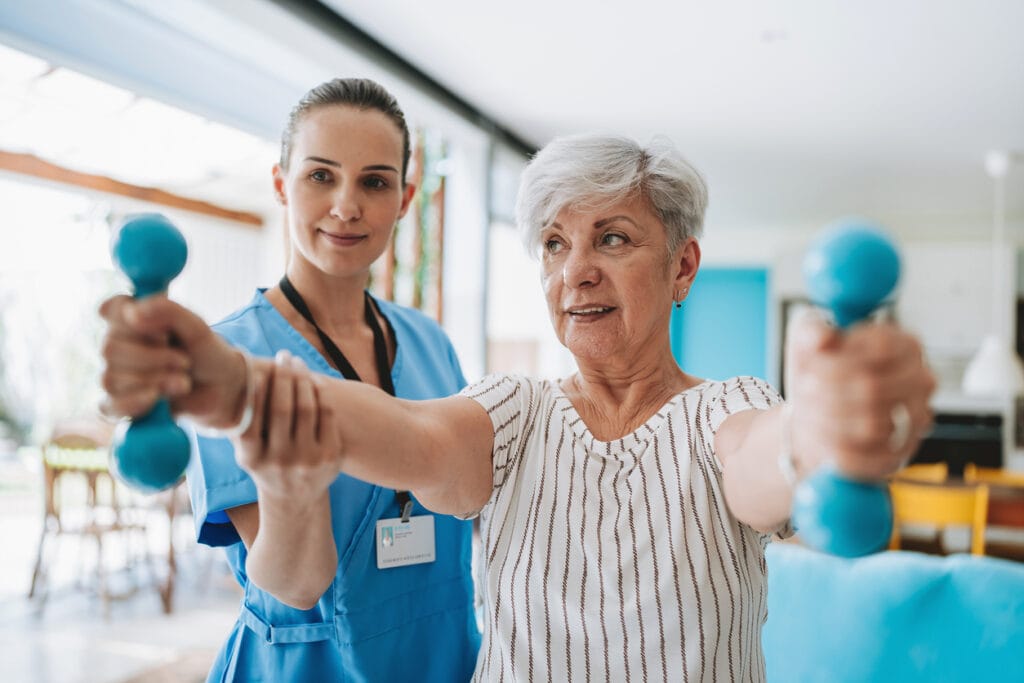In an era where the aging population is on the rise, the significance of home health care for our elderly loved ones cannot be overstated. As family caregivers, we are acutely aware of the evolving needs of our aging relatives and the importance of providing them with personalized care tailored to their unique requirements. Recognizing this growing need, our blog endeavors to serve as a guiding light for fellow caregivers, offering insights and assistance in navigating the intricate landscape of home health care services. Through shared experiences and practical advice, we aim to empower caregivers with the tools they need to ensure the well-being and comfort of their elderly loved ones.
Understanding Home Health Care
For our elderly loved ones, home health care means receiving a comprehensive range of services right in the comfort of their own homes. It goes beyond medical assistance, addressing both their medical needs, like medication management and physical therapy, and non-medical needs, such as help with daily activities and companionship. This personalized approach ensures that they can maintain their independence and dignity while receiving the care they need. Whether it's medical attention or assistance with daily tasks, home health care allows our elderly relatives to age gracefully and comfortably in familiar surroundings, promoting their overall well-being and quality of life.
Benefits of Home Health Care
- Personalized care in the comfort of home: Home health care ensures that our loved ones receive care tailored precisely to their unique needs and preferences. This personalized approach fosters a sense of empowerment and control, enhancing their comfort and confidence in managing their health from the comfort of home.
- Maintaining independence and quality of life: By receiving care at home, our elderly family members can preserve their independence and continue participating in the activities they enjoy. Whether it's pursuing hobbies, spending time with loved ones, or simply enjoying familiar surroundings, home care allows them to maintain a sense of autonomy and dignity.
- Enhanced safety and well-being: Home health care reduces the risk of accidents and injuries associated with institutional care settings. With professionals providing assistance and supervision directly in the home, our loved ones can navigate their living space safely and confidently, minimizing the risk of falls and other hazards.
- Improved health outcomes: Studies have shown that receiving care at home can lead to better health outcomes for elderly individuals. By receiving personalized care in a familiar environment, they are more likely to adhere to treatment plans, experience fewer complications, and enjoy improved overall health and well-being.
- Peace of mind for families: Home health care provides families with peace of mind, knowing that their loved ones are receiving high-quality care in the comfort of home. This alleviates the stress and worry associated with managing their care and allows families to focus on spending quality time together, creating cherished memories and strengthening bonds.
Assessing Your Loved One’s Needs

Understanding and assessing our elderly loved one's needs is paramount to providing them with the best possible care. Here's a breakdown of key areas to consider when evaluating their requirements:
Physical Health Needs
First and foremost, it's essential to address our loved one's physical health needs. This may include:
- Chronic conditions management: Many elderly individuals may have chronic health conditions such as diabetes, heart disease, or arthritis that require ongoing management and monitoring.
- Post-surgery care: If our loved one has recently undergone surgery, they may need assistance with wound care, medication management, and rehabilitation exercises to aid in their recovery.
- Mobility and physical therapy needs: Assessing our loved one's mobility limitations and physical therapy requirements is crucial for maintaining their independence and quality of life.
Cognitive and Emotional Needs
In addition to physical health, it's vital to consider our loved one's cognitive and emotional well-being. This may involve:
- Dementia and Alzheimer's care: If our loved one is living with dementia or Alzheimer's disease, they may require specialized care and support to help manage symptoms and ensure their safety.
- Mental health support: Depression, anxiety, and other mental health issues are common among the elderly. Providing emotional support and access to mental health resources is essential for their overall well-being.
- Companionship and social interaction: Loneliness and social isolation can have a significant impact on our loved one's mental and emotional health. Ensuring they have opportunities for companionship and social interaction is vital for their happiness and quality of life.
Daily Living Activities
Lastly, assessing our loved one's ability to perform activities of daily living (ADLs) and providing assistance as needed is crucial. This may include:
- Assistance with ADLs: Tasks such as bathing, dressing, grooming, and eating may become challenging for our loved one as they age. Providing assistance with these activities ensures their safety and comfort.
- Household tasks and errands: Managing household chores and running errands may become overwhelming for our loved one. Offering support with these tasks can alleviate stress and ensure their living environment remains safe and tidy.
- Medication management: Keeping track of medications and ensuring they are taken as prescribed is essential for managing our loved one's health conditions effectively. Providing assistance with medication management helps prevent missed doses and medication errors.
Exploring Different Types of Home Health Care Services
Navigating the world of home health care services can be overwhelming, but understanding the various options available can greatly benefit our elderly loved ones. Let's explore the different types of home health care services:
Skilled Nursing Care
Skilled nursing care involves services provided by registered nurses with specialized training and qualifications. These professionals play a crucial role in managing our loved one's medical needs at home. Typical duties and responsibilities may include medication management, wound care, monitoring vital signs, and coordinating care with other healthcare providers.
Home Health Aides
Home health aides are essential members of the caregiving team, offering valuable support and assistance to our loved ones in their daily lives. These aides may not have medical training but are trained to provide various types of non-medical care. They assist with tasks such as bathing, dressing, grooming, meal preparation, and light housekeeping. Their presence also provides companionship and emotional support to our loved ones.
Therapy Services

Therapy services encompass a range of rehabilitative treatments aimed at improving our loved one's physical and cognitive functioning. This includes:
- Physical therapy: Physical therapists work with our loved ones to improve mobility, strength, balance, and coordination through exercises and other techniques.
- Occupational therapy: Occupational therapists focus on helping our loved ones regain independence in daily activities such as dressing, cooking, and using the bathroom, adapting the environment to meet their needs.
- Speech therapy: Speech therapists assist with communication and swallowing difficulties, providing exercises and strategies to improve speech and language skills.
Personal Care Assistants
Personal care assistants provide non-medical support to our loved ones, helping them maintain their independence and quality of life. These assistants may offer companionship services, accompany our loved ones to appointments or social outings, and assist with tasks such as grocery shopping and medication reminders. Their presence offers peace of mind to both our loved ones and their families, knowing that someone is there to provide assistance and companionship.
Evaluating Home Health Care Providers
Choosing a home health care provider for our seniors requires a careful assessment. Prioritize licensed agencies to ensure safety and adherence to regulations, as up to 15% may not comply according to the Government Accountability Office (GAO) report. Look for experience - a 2020 study showed higher satisfaction rates with experienced aides, as per the National Association for Home Care & Hospice (NAHC) study. Matching their expertise to your loved one's specific needs is key. Online reviews, relied upon by nearly 70% of caregivers according to sources like Pew Research Center or AARP, and references from past clients can provide valuable insights into the provider's reputation and quality of care. This meticulous evaluation based on licensing, experience, specialization, reputation, and references empowers caregivers to choose the best provider for personalized care, promoting their loved ones' well-being and comfort while aging at home.
In conclusion, it's essential to prioritize the well-being and comfort of our elderly loved ones by carefully considering their needs and selecting the most suitable home health care services. Throughout this journey, we've explored various aspects, from understanding the importance of home health care to assessing our loved one's specific needs and evaluating potential providers. Together, let's navigate the journey of home health care with compassion, resilience, and a commitment to ensuring the comfort and happiness of our elderly loved ones.





